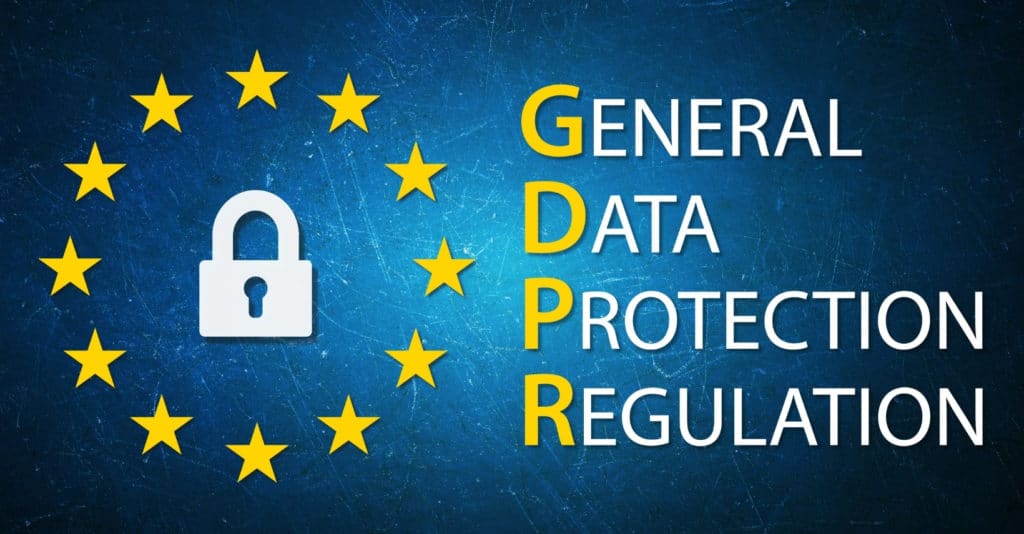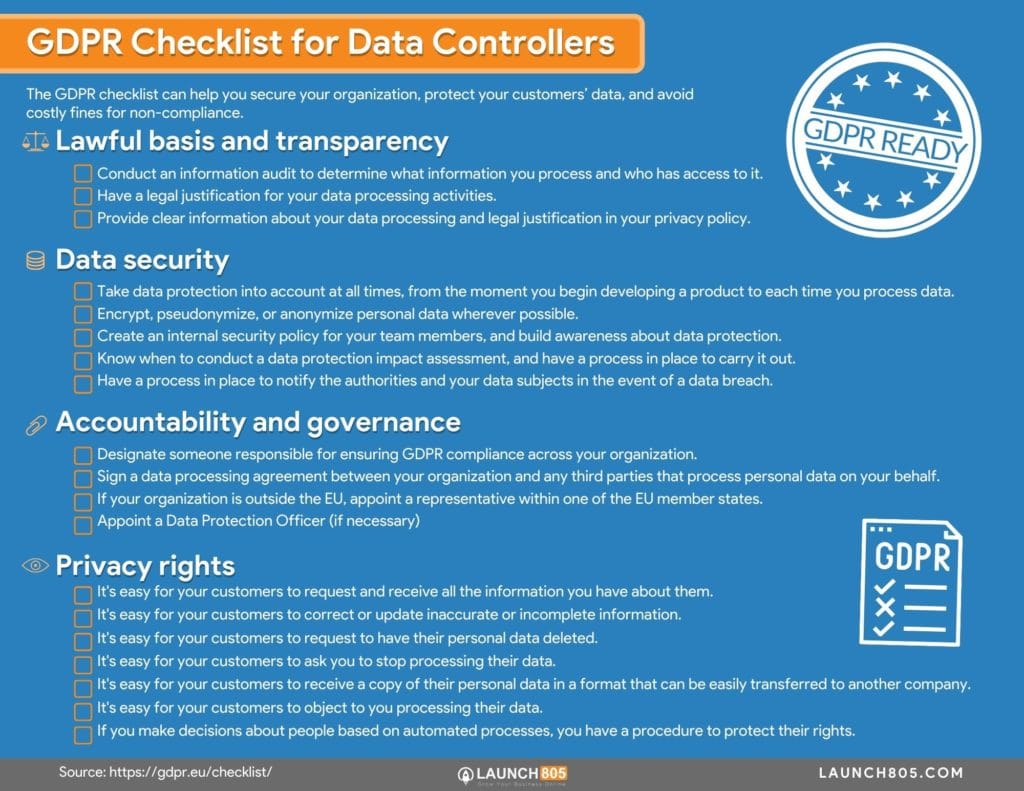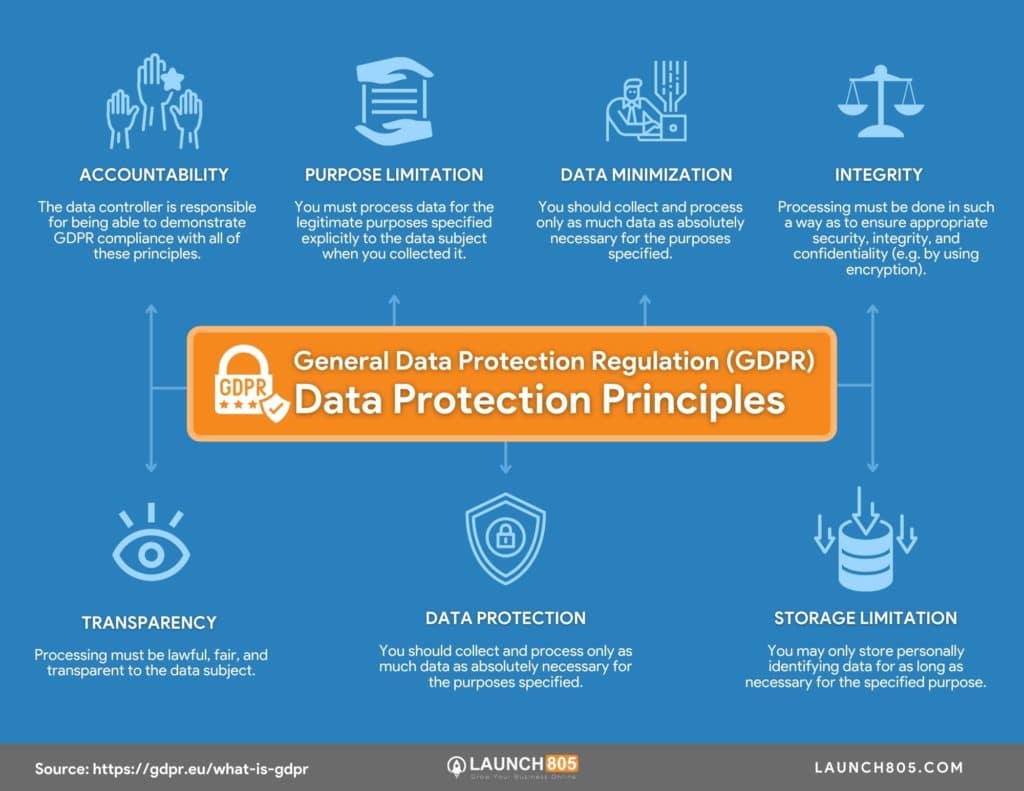
Digital marketing is a multidimensional industry that utilizes a vast amount of consumer data.
As a result, a well-implemented regulatory framework is required to ensure that consumer protection remains a high priority. Measures such as the California Consumer Privacy Act have been established in the local and global legal community to necessitate the urgent need for data privacy and protection in the digital marketing process.
The European Union’s General Data Protection Regulation (GDPR) was enacted and made applicable on 25 May 2018. This regulatory framework’s main aim is to protect an individual’s right to protection of their data, and it clarifies the process that companies need to follow to safeguard the rights of an individual who is a data subject.
There are many surprising benefits that compliance with the GDPR can bring to businesses.
For instance, it can provide enhanced cybersecurity measures because, since its implementation, GDPR has propelled digital businesses to enhance their data privacy and influenced the development of their security systems and practices.
Moreover, when companies adapt their data protection regulations, they can naturally build customer trust and loyalty.
But has the GDPR achieved its purpose? And if so, what new developments have been made since its inception into the digital business market in 2018?
Keep reading this article to find out more about the importance of this piece of legislation, the impact of the GDPR particularly in the digital marketing industry, and new developments in cross-border data transfers that could change the face of digital marketing.

Why Is the GDPR Important for the Digital Marketing Industry?
GDPR has provided digital marketing with core benefits that have ensured to improve its overall performance by making it more efficient to personalize its product offering by providing customers the consent to allow businesses to utilize their data for marketing purposes.
The rules that are outlined in this regulatory provision require companies to comply with data audit processes that are essential to creating compelling and more personalized offers.
This has ensured that companies align with data-driven marketing strategies. As a result, more companies are raising their marketing profile by taking the lead towards developing the culture of data privacy that is required by the GDPR.
By providing consumers with the option to opt into and out of their data being used for advertising, companies have more opportunities to enhance the data collected to communicate with their most valuable customers as well as prospective customers.
Having customers that are already engaged, ensures that sales get more qualified leads which benefits these companies by eliminating time spent on chasing leads, which inevitably increases productivity and sales.

The Impact So Far
Individual user data has been utilized as a part of contemporary marketing strategies that rely on the use of personal data as a primary revenue source for digital marketing companies.
This increase in the use of personal data to generate leads and sales contributed to the implementation of the GDPR.
There are key principles that include lawfulness, fairness, and transparency that are set out at the beginning of the GDPR that require compliance as a fundamental component for the use of data. The main responsibility that digital marketing faces lie in the initial process of collecting data.
Before its enactment, companies could collect data without consent and use it for their marketing purposes. However, since the GDPR was enacted companies are not allowed to collect data as they please due to key issues that impact this process such as legal bases for the processing of data, obtaining consent, and the opting-in and out option.
Consequently, when companies use data to target sales, this data has to be collected and processed by the provisions of the GDPR particularly the seven key principles that are outlined in this piece of legislation. This has impacted the digital marketing industry by necessitating a legal basis for data collection by requiring companies to provide established privacy policies.
An evaluation report conducted and published by the European Commission in 2020 highlighted that the GDPR has met the majority of its objectives and that it has provided essential security solutions in unforeseeable circumstances that have forced the world to rely on data to propel businesses towards the digital economy.
More businesses have developed a compliance mechanism and utilize robust data protection as part of their competitive advantage strategy. Additionally, more consumers are aware of their data protection rights and use the opt-in and out option to preserve their data privacy rights.

What New Developments Can the Digital Industry Expect?
The untimely pandemic in 2020 brought about many changes to the world of data protection regulation for the digital marketing industry.
The most notable of these developments was the California Consumer Privacy Act that was enacted in January 2020 which resulted in the ruling that the EU-US privacy shield was invalid rendering it unenforceable to maintain a free flow of data between these countries.
This ruling has highlighted that the transfer of sensitive consumer data is a high priority that needs to be adhered to by all parties.
Many countries are embarking on adopting and reviewing their cross-border privacy policies to ensure that they are compliant with the standardization and regulatory requirements as prescribed by the GDPR.
The European Data Protection Board has published draft recommendations containing rules that companies should abide by to lawfully transfer sensitive data information.
These developments are set to impact the manner that international companies collect and process data from EU citizens and uphold strict regulations for compliance with cross-border transfers.
The developments envisioned for data privacy protection will ensure that many countries enforce privacy laws and that they are in line with the new cross-border standards that are set out by the GDPR.
What Are the Similarities with the CCPA?
These two pieces of legislation have similar principles and expectations when it comes to the protection of data subjects by providing them with the right to obtain and view personal data that companies have collected from them.
They both require businesses to disclose how they utilize personal data from subjects and cybersecurity security measures that provide data subjects with the option to have their collected data deleted from the archives.
Even though some businesses are not obliged to comply with both laws, failure to comply with one of these regulations can institute civil penalties.

The Bottom Line
GDPR and other regulatory frameworks such as the CCPA have provided data subjects protection of their fundamental right to privacy by ensuring that companies comply with key principles such as transparency when collecting data.
Similarly, digital marketing has acquired a myriad of advantages aimed at defining its competitive edge. Compliance with GDPR requirements and taking appropriate measures that are designed to protect consumer data promote meaningful customer engagements and drive traffic of valuable prospects to your business.
So, if you are having trouble with maneuvering the drawbacks of these regulations, it would be in your company’s best interest to understand the core principles and advantages of incorporating the rules as set out in both the GDPR and CCPA to enhance your business strategy into the future success of your brand.


What are your thoughts? Tell me in the comments below.


I agree with your insight. Digital marketing had to adapt in many ways to comply with the current GDPR rules. Affirmative and granular consent is one of the most important, as is a more comprehensive and up-to-date Privacy Policy that protects all of the marketing activities.
I think laws like the GDPR are something that are definitely needed with the in-depth personal data that companies and apps (Facebook being a primary example) can acquire about their users.
And users should absolutely have a right to protect their personal information. But the problem with GDPR is that it is really tough for both users and those in web design, marketing and analytics to understand. I thought you did a really nice job of explaining the complex GDPR in your infographic, I know I learned a thing or two from it.
I hope this is a step forward in protecting our data. I wouldn’t even want to imagine what some of the websites collect on us on a daily basis. I try to limit my sharing as much as I can. I dont want companies building a free profile out of me. Going to a website and them knowing your past purchases is great and all but there can reach a point where too much is too much.